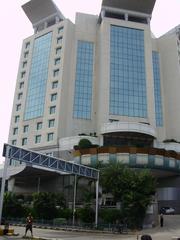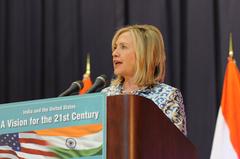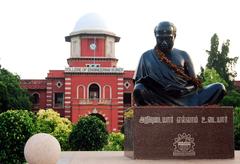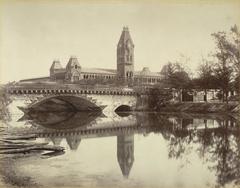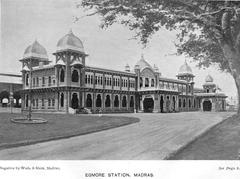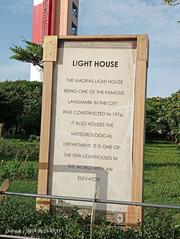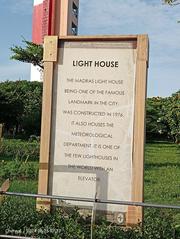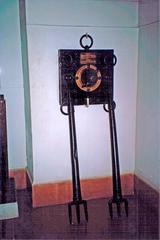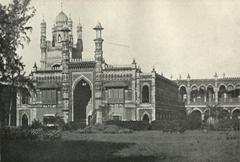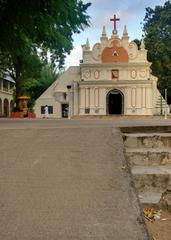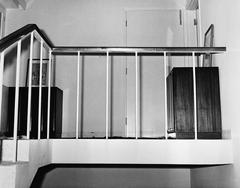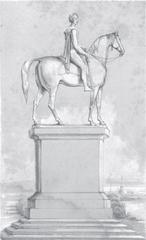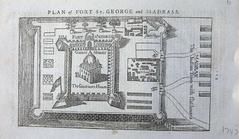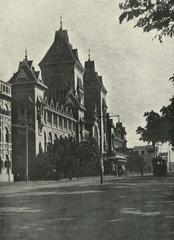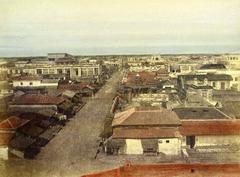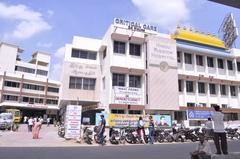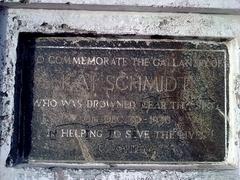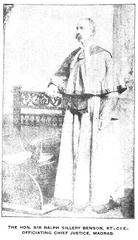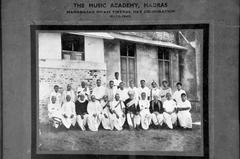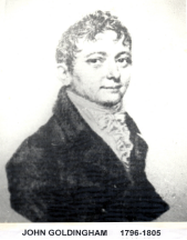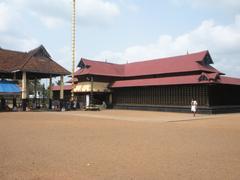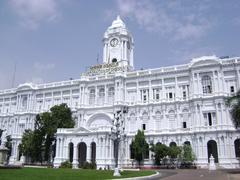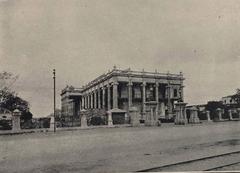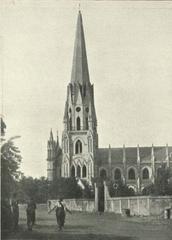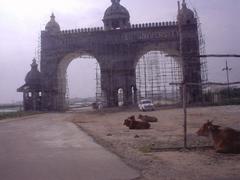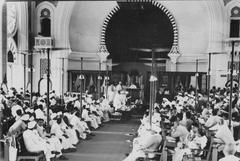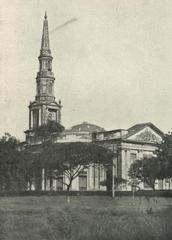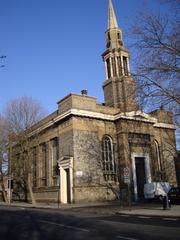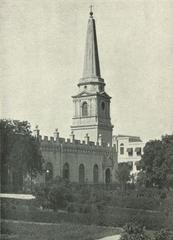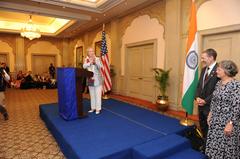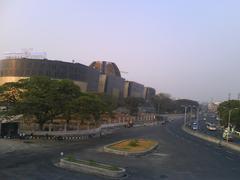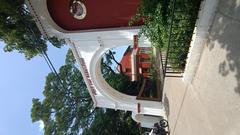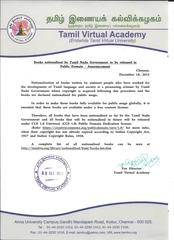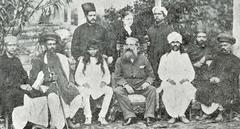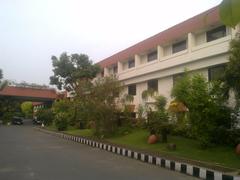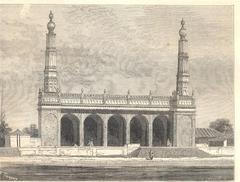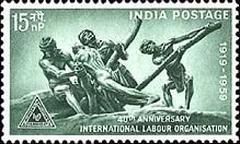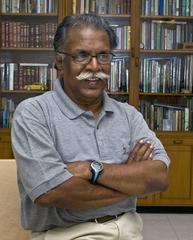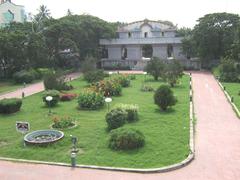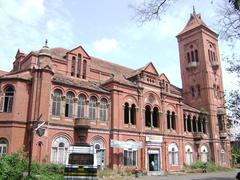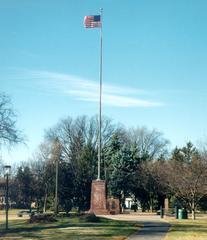Egmore Eye Hospital Chennai: Visiting Hours, Tickets, and Historical Significance
Date: 15/06/2025
Introduction
Nestled in Chennai’s historic Egmore district, the Egmore Eye Hospital—officially known as the Government Ophthalmic Hospital (GOH) or the Regional Institute of Ophthalmology—stands as one of the oldest and most influential eye hospitals in the world. Established in 1819, it is the second-oldest eye hospital globally and the first of its kind in Asia, symbolizing more than two centuries of pioneering ophthalmic care, innovation, and education. This guide offers a comprehensive overview of the hospital’s remarkable history, its architectural and academic legacy, and practical information for visitors, including visiting hours, accessibility, ticketing, and nearby attractions (LWW Journal; New Indian Express; PMC Article).
Table of Contents
- Early Roots of Ophthalmic Care in Tamil Nadu
- The Global Context: Rise of Dedicated Eye Hospitals
- Founding and Growth of Egmore Eye Hospital
- Architectural Heritage and Museum
- Pioneering Medical Education and Innovations
- Role in Public Health and Community Impact
- Visiting Egmore Eye Hospital: Hours, Tickets, and Tips
- Accessibility, Etiquette, and Facilities
- Nearby Attractions and Cultural Sites
- FAQs
- Conclusion
- References
Early Roots of Ophthalmic Care in Tamil Nadu
Ophthalmic care in Tamil Nadu traces its origins to the Chola dynasty (11th century), when rulers established hospitals stocking medicines for eye ailments. Historical records from the 14th and 15th centuries document treatments aimed at improving ocular health. Notably, King Serfoji II of Thanjavur (1798–1832) contributed to the field by integrating European and Indian medical knowledge and performing cataract surgeries, leaving behind detailed records that inspire modern ophthalmologists (LWW Journal).
The Global Context: Rise of Dedicated Eye Hospitals
The emergence of dedicated eye hospitals worldwide was catalyzed by the trachoma epidemic brought back to Europe by soldiers during the Napoleonic Wars. The world’s first eye hospital, Moorfields in London, was established in 1804. Inspired by these developments, the British administration in India recognized the need for specialized ophthalmic care, laying the groundwork for the establishment of the Madras Eye Infirmary in 1819 (LWW Journal).
Founding and Growth of Egmore Eye Hospital
Establishment and Early Expansion
Founded as the Madras Eye Infirmary in 1819, the hospital initially operated from Royapettah before moving to Egmore in 1820 due to increasing demand. By 1884, it relocated to its current site on Rukmani Lakshmipathi Road, adopting the name Government Ophthalmic Hospital (GOH) in 1888 (New Indian Express; PMC Article).
Architectural Heritage and Museum
The hospital’s campus is a blend of Victorian-era and modern architecture. The Lawley Block, with its colonial features, is a highlight for visitors. In 1921, the Elliot School and Museum in Ophthalmology was inaugurated, housing rare instruments, medical texts, and historical records—making it one of the world’s most significant ophthalmic museums (New Indian Express; The Hindu).
Pioneering Medical Education and Innovations
Egmore Eye Hospital has been at the forefront of ophthalmic education in India, introducing Asia’s first postgraduate curriculum in ophthalmology. It has produced numerous scientific publications and is renowned for innovations such as the Elliot trephine for glaucoma surgery—an instrument still in use globally (LWW Journal).
Role in Public Health and Community Impact
The hospital’s mission has always been to provide free, accessible eye care. It serves as a tertiary referral center for Tamil Nadu and neighboring states, offering advanced treatments for cataracts, glaucoma, corneal diseases, and more. With a busy eye bank performing hundreds of corneal transplants annually and a longstanding glaucoma clinic, the hospital plays a key role in blindness prevention and community outreach (PMC Article).
Affiliated with Madras Medical College, the hospital also serves as a vital hub for medical training and research (LWW Journal).
Visiting Egmore Eye Hospital: Hours, Tickets, and Tips
Visiting Hours
- Outpatient Department (OPD):
Monday to Saturday, 9:00 AM – 8:00 PM
(Some sources note 8:00 AM – 2:00 PM; confirm with the hospital for the latest schedule.) - Emergency Services:
Available 24/7 - Museum Visits:
By prior arrangement only; contact the administrative office for guided tours.
Entry and Tickets
No entry ticket is required for general hospital visits. Museum and heritage tours are free but require advance permission.
Practical Visiting Tips
- Best Time to Visit:
Late mornings or early afternoons are less crowded. Avoid Mondays and early mornings due to peak patient flow. - ID Requirements:
Carry government-issued ID (passport for foreigners, Aadhaar for Indian citizens). - Dress Code:
Modest attire is recommended. - Photography:
Permitted for exterior heritage buildings with approval; not allowed inside clinical areas.
Accessibility, Etiquette, and Facilities
- Location:
Rukmani Lakshmipathi Salai, Egmore, Chennai, Tamil Nadu 600008
(IndCareer) - Transport:
Easily accessible by bus, auto-rickshaw, taxi, and suburban rail (Egmore Station nearby). - Parking:
Limited; public transport recommended. - Wheelchair Access:
Ramps and elevators available, though some heritage buildings may be less accessible. - Languages:
Tamil and English widely spoken; signage is bilingual. - Amenities:
Waiting areas, drinking water, restrooms, and nearby eateries.
Nearby Attractions and Cultural Sites
- Government Museum, Egmore:
Rich collections in art, archaeology, and natural history. - Connemara Public Library:
Noted for its colonial architecture and historic collections. - Marina Beach:
One of Chennai’s most famous landmarks. - Valluvar Kottam:
Monument to the Tamil poet Thiruvalluvar.
These sites are within easy reach and allow visitors to explore Chennai’s cultural heritage alongside their hospital visit.
FAQs
Q: What are the Egmore Eye Hospital visiting hours?
A: OPD is open Monday to Saturday, 9:00 AM – 8:00 PM; emergency services are available 24/7.
Q: Is there an entry fee or ticket required?
A: No, entry is free for all visitors. Museum tours are also free but require prior arrangement.
Q: How do I reach the hospital?
A: The hospital is centrally located and accessible via public transport. Egmore Railway Station is nearby.
Q: Are guided tours available?
A: Yes, for the Elliot Museum and heritage buildings, but only by prior arrangement.
Q: Is the hospital accessible for people with disabilities?
A: Yes, most areas are wheelchair accessible, though some older buildings may have limitations.
Q: Can I take photographs?
A: Exterior heritage buildings may be photographed with permission. Photography is restricted inside clinical areas.
Conclusion
Egmore Eye Hospital is not just a center for advanced eye care but also a living monument to the history of medicine in India. Its legacy encompasses over 200 years of clinical excellence, educational leadership, and social outreach. Whether seeking treatment or exploring Chennai’s heritage, visitors will find the hospital a compelling destination. Remember to plan ahead for museum visits, respect hospital protocols, and take time to enjoy nearby cultural landmarks.
For more information, updates, or to arrange heritage tours, visit the official hospital website or use local resources. Enhance your visit further with the Audiala app for guided audio tours and stay informed about Chennai’s medical and cultural offerings.
References
- Two hundred glorious years of Egmore Eye Hospital, 2020, Indian Journal of Ophthalmology (LWW Journal)
- 200 years of a clear vision, 2018, New Indian Express (New Indian Express)
- History of medicine in Madras, 2021, The Hindu (The Hindu)
- Regional Institute of Ophthalmology and Government Ophthalmic Hospital, Egmore, IndCareer (IndCareer)
- Egmore Eye Hospital – Visiting Hours, Tickets & Historical Significance, Live Chennai (Live Chennai)
- Government Ophthalmic Hospital - PMC Article (PMC Article)
For more travel and health guides, download the Audiala app and follow us on social media.
